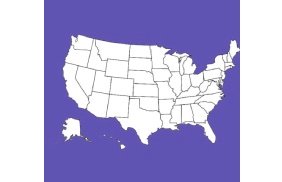Author – Tami L. Wahl

With over twenty years of legal and legislative experience, I am proud to represent forward-thinking clients from a diverse business landscape.
I work with industry stakeholders, trade groups, committee staff, federal agencies, and Congressional members on both sides of the aisle to drive sound policy solutions and ultimately, create balanced pathways to market for innovative products.
My legal career started in private practice as criminal defense counsel in Austin, Texas, and for the past 10 years, I have worked as legislative and regulatory counsel, General Counsel, and In-House Counsel for entrepreneurs, and small-to-medium size companies. I have expertise in working with the U.S. Food & Drug Administration (FDA), U.S. Department of Agriculture (USDA), Federal Trade Commission (FTC), and Customs and Border Patrol (CBP), and a solid network of colleagues to amplify the Client’s presence if need be.
I have spoken nationally on issues germane to my work and am committed to realizing the successful intersection of consumer safety, appropriate agency oversight and unencumbered innovation.
Modern Advocates
Establishing oversight without sacrificing innovation.
M: 202.975.9221
TamiLWahl.com
As cannabis-related discussions on the Hill gain momentum and interest, a cautionary note for stakeholders is to avoid reactionary concessions that would subject the industry to high or aggressive graduated tax rates. The trade-off for legislative reform – incremental or comprehensive – is not worth the long-term impact of an exorbitant tax scheme.
Cannabis (Cannabis sativa L.) is a plant with a lengthy history of use, to include a listing in the Pharmacopoeia of the United States of America (USP) from 1850-1940. The therapeutic properties of the plant have long been known and well established as reflected by most states having enacted a medical cannabis program. Additionally, over the past nine (9) years, 23 states have enacted regulated adult-use (recreational) programs. The plant can also be grown in a variety of conditions, albeit for an optimal harvest, agricultural practices must be tailored to specific micro-climates. Hence, a plant with a well-known profile and adaptability should translate to increased access for the individual and business interests alike. However, as the state-regulated cannabis industry has matured the opposite is occurring.
For example, to purchase an adult-use product in the regulated market an individual must absorb a ‘privilege’ tax and other local taxes on top of the state’s sales tax and the retail price of the good (e.g., VA 21% + 3% by local gov’t; OR 17% + 3% local gov’t; WA 37%; MT 20% + 3% local gov’t; MA 10.75% + 3% local gov’t). To compound, the federal oversight proposals coming out of D.C. want a hefty federal excise tax placed on these same products. Why should a consumer good that is produced from a plant that under proper conditions grows in abundance be subject to such an excessive tax scheme? A high federal tax rate is not warranted nor a foregone conclusion.
The ripple effect from excessive taxes is palpable. High tax rates drive an illicit market. Look to California. Cannabis has been quasi-readily accessible in the state for decades with a medical cannabis program formally enacted in 1996 and an adult-use program in 2018. However, the illicit market (if you will) continues to thrive in the state and even outperforms the regulated market on occasion due to the excessive taxes and cumbersome regulations imposed on the regulated market.
Another consequence of arbitrarily high tax rates is the impact on small businesses and artisan brandholders. To mitigate substantial excise taxes, a brand may try lowering the cost of the good via high volume, mass production. Supply chains in this setting thrive on price point purchasing and often qualify for volume discounts. Whereas small businesses and artisan brandholders pursue quality over price point and typically have smaller production runs, which do not qualify for volume discounts. Consequently, under this market model smaller operations cannot compete, especially with complex and costly licensure processes for market entry and ever-changing regulations to remain in the market.
Finally, cannabis is used both medicinally and socially, of which the latter is often likened to the tobacco and alcohol industries. By doing so, there is an assumption that the adult-use cannabis market should be subject to a similar tax structure as imposed on tobacco and alcohol products. This is flawed and shortsighted as those tax structures are solely rooted in the ‘because we can’ mentality. Federal oversight for the regulated cannabis industry is a blank slate and to sustain a dynamic marketplace, industry must hold strong and avoid rushed concessions on arbitrary – and excessive – tax schemes.
The state laboratories of democracy loudly demonstrate the need for appropriate regulations, which includes the excise tax structure if any is to be imposed. The federal overlay must intersect with the existing state markets in a manner that fosters innovation and encourages a market environment to deliver high-quality, safe products. There is an opportunity with the cannabis industry to approach oversight with a fresh and contemporary lens versus layering the industry with unnecessary regulations and cost-prohibitive tax schemes. Consumers are interested in the cannabis product category. Brandholders and retail shops are trying to meet that demand. Government’s role is appropriate oversight. End of.





